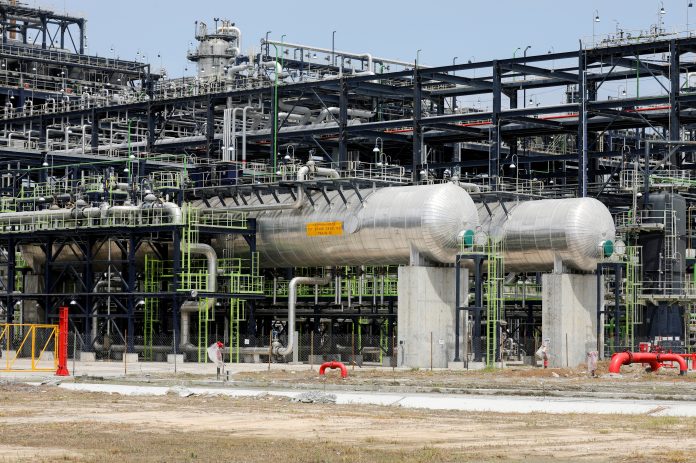The 650,000 Dangote refinery could massively reduce West Africa’s reliance on import of petrol from Europe by as much as 290,000 bpd.
This is according to S&P Global Commodity Insights, which noted that Dangote refinery will become a dominant supplier in the sub-region when it finally ramps up refining activities.
S&P analysts, who spoke during a panel discussion themed: “Exploring West Africa’s Oil Product Flows in a Changing Refining Landscape”, agreed that although delayed, the $19 billion facility in Lagos will before 2026, significantly change the fuels supply landscape in West Africa.
The panel featured Joel Hanley, Matthew Tracey-Cook, Kelly Norways and Elza Turner, all analysts and contributors at S&P Global.
- Blows for France, USA as Russia sends air defence system, soldiers to Niger
- Gatwick Airport: Why UK passenger didn’t join our flight to Lagos — Air Peace
“Once Nigeria sees Dangote reach a steady state capacity, that could mean some 327,000 barrels per day gasoline (petrol) supply and 244,000 barrels per day of diesel or gas oil. In practice, how that splits between the domestic market and the export market remains to be seen.
“There’s a significant amount of pressure from the Nigerian government for significant volumes of that supply to flow to the domestic market to try and solve this cost of living crisis and prevent significant pay-outs that need to be made onto importing those large volumes.
“ But in reality, when we see that start to scale up is still subject to debate. Dangote have been espousing some pretty punchy timelines.
“They’ve most recently been saying that they’re looking to produce gasoline by May latest, but in reality, our analysts expect that that would be something like the fourth quarter of this year and in a more realistic timeline.
“Once we see the refinery ramp up, that could mean that West African gasoline imports or the import reliance that they have at the moment could drop by as much as 290,000 barrels per day between 2023 and 2026. So really, this could become quite a dominant supplier in the West African market, subject to when we start to see those barrels hit the market in Nigeria and the local region,” said Norways, Downstream Sector Oil analyst at S&P.
S&P described the ongoing level of downstream activities in the downstream as a ‘flux’, stressing that the Dangote refinery may also reduce the amount of cargo that often sit off the coast of West Africa.
“If you’ve ever been to Lagos, you see these enormous queues of refined products tankers waiting there. Now, one thing that I think people thought might relieve some of the pressure and, as I said, redress the imbalance somewhat would be the Dangote refinery…
“And it’s finally got going, not fully up to speed perhaps, but we started to see a cargo coming out, which is exciting,” stated Hanley, a Director at S&P.
Hanley stated that while the ramp-up is important, it was also important for the firm to look at ‘where the money is.’
“As you said, there’s pressure from the Nigerian government because, of course, they would like this much-vaunted, long-awaited, Waiting for Godot kind of refinery to supply the local market and take some of the pressure off.
“But if the international markets are prepared to pay up for that product, then it’s going to be tricky. It’s a very tricky balance to decide where that flow will go,” Hanley added.
Another analyst at the firm, Tracey-Cook, noted that: “Russia has completely cut off exports to West Africa, which saw some other regions that we haven’t previously seen exporting take some space in the total export pool”.
“So the Mediterranean, specifically Spain, has been taking a larger role in Europe, exporting gasoline into Nigeria in particular,” Tracey-Cook said.
The much-awaited Dangote refinery last week announced a price reduction of diesel to N1,000 per litre from N1,200 previously and has refuted insinuations that the slash in price was attributable to the high sulphur content of its products.
TheLeadng reports that Dangote refinery is a 650000 barrels per day (bpd) integrated refinery and petrochemical project. The Dangote refinery will be the seventh-largest oil refinery in the world upon completion.





